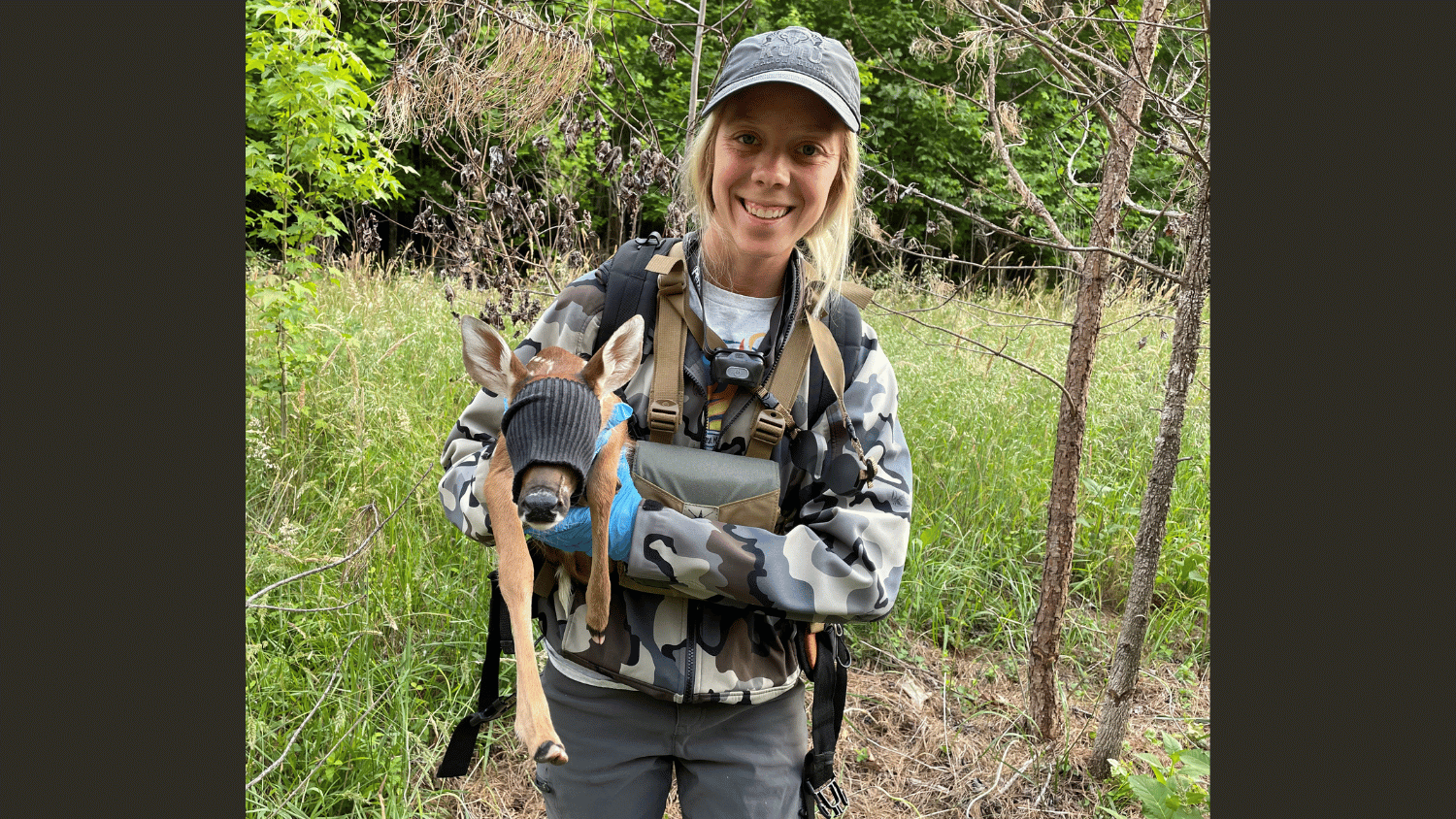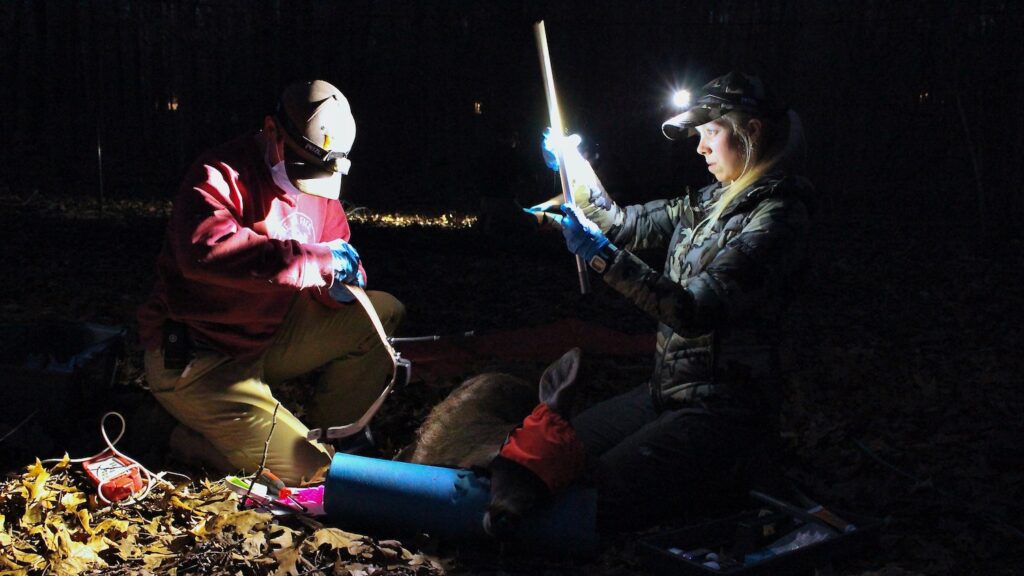Researcher Spotlight – Mikiah Carver

2023-24 Global Change Research Fellow
PhD Student, Department of Applied Ecology
Advisors: Christopher Moorman & Nathan Hostetter
About You
What do you study?
My current research investigates the potential influence of urbanization on wildlife movements and behavior, resource selection, and mortality risk using white-tailed deer as a case study species.
What (or who) influenced you to go into this field of study?
My passion for wildlife and the outdoors was cultivated at a young age through my parents’ influence and a predisposed curiosity of the natural world. In recent years, my decision to go into the field of wildlife conservation was largely influenced by Dr. Steve Petersen. His sincere dedication to his students and his ability to inspire others about the importance of wildlife conservation encouraged me to pursue an alternative career path after completing my undergraduate degree.
What do you think is the most pressing issue related to global change?
Rising temperatures are an incredibly pressing issue. A warming environment has profound implications for humans, wildlife, and whole ecosystems through the reorganization of biomes, species distributions, and in some cases extinction.
About Your Research

What is the most important thing that you’ve learned?
Urban areas are expanding at a global scale, and the process of urbanization typically reshapes existing plant and animal communities. Concurrently, the changing climate is further altering these communities. Changes associated with human activities can pose significant challenges for existing and planned conservation efforts. If we hope to maintain healthy wildlife populations in urbanized areas, we must plan and build our cities in a way that is sustainable.
Who will benefit from your research?
My research will provide science-based information to inform effective management plans for deer populations throughout North Carolina.
How would you describe your research to a 3rd grader?
Deer are really good at hiding and sometimes it is hard for scientists to learn about them. So, we have come up with a clever way to learn about deer without having to follow them around all the time. We put collars on some deer. The collars have special devices that help us know where the deer go and what they do during the day. We can use this information to learn about the deer’s secret lives–like what they like to eat, where they go for fun, and how they stay safe from other animals. It’s like a deer adventure diary, but the deer doesn’t have to write anything down; the collar does it for them! This diary helps us protect the deer and make sure they have a happy and healthy life in the wild.
About Your Global Change Research Fellow Experience
How do you expect the SE CASC Global Change Research Fellows Program to impact you and your work?
The Global Change Fellows Program has already impacted me and my work. Specifically, it has provided me with a greater understanding of how to conduct research in a world with many competing interests.
What advice would you give to a student that is interested in getting involved in your field?
Get to know your professors early on and remember that everybody’s path is different. Do something different that sets you apart from the crowd and try to expose yourself to different perspectives along the way.
What has been the most rewarding part or your favorite part of being a SE CASC Global Change Research Fellow?
The best part of being a Global Change Fellow is connecting with your cohort and learning about them and their research. Everyone’s diverse perspectives and backgrounds lead to engaging conversations and varied approaches to natural resource management and climate change issues.
Learn more about the Southeast Climate Adaptation Science Center’s Global Change Research Fellows program.
- Categories:
